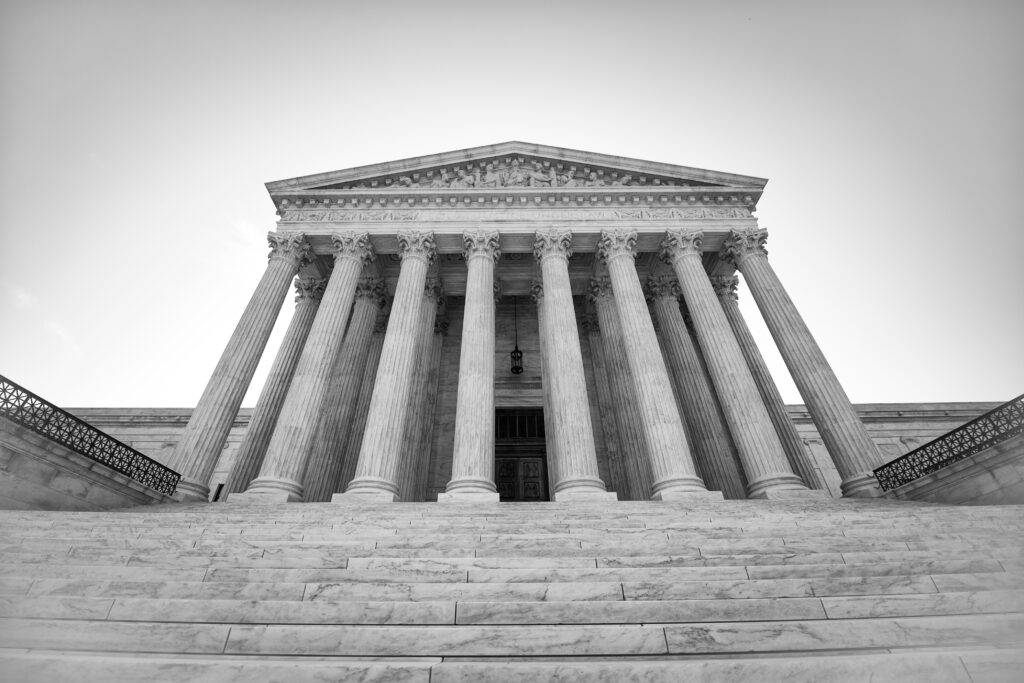
The Supreme Court in a 5–4 vote Monday granted the Trump administration’s request to vacate a lower-court ruling preventing it from deporting people using an 18th century wartime law. However, it stipulated that those subject to law are entitled to notice and an opportunity to challenge their removal.
President Donald Trump invoked the Alien Enemies Act last month through an executive order to send hundreds of people to a hard labor prison in El Salvador.
The Trump administration alleged that those removed were members of Tren de Aragua, a transnational criminal organization that originated in Venezuela, but it did not give those removed the chance to challenge their designation, nor did it publicly provide evidence they are members of the gang.
Despite the Trump administration’s allegations, the vast majority of those sent to the Salvadorian prison have no apparent criminal convictions or even criminal charges, a “60 Minutes” investigation recently found.
In dissenting opinions, the court’s liberals, with whom Justice Amy Coney Barrett in part joined, warned that the majority’s decision represented a threat to the rule of law.
“The Court’s legal conclusion is suspect,” Justice Sonia Sotomayor’s dissent read. “The Court intervenes anyway, granting the Government extraordinary relief and vacating the District Court’s order on that basis alone.”
“It does so without mention of the grave harm Plaintiffs will face if they are erroneously removed to El Salvador or regard for the Government’s attempts to subvert the judicial process throughout this litigation,” Sotomayor wrote. “Because the Court should not reward the Government’s efforts to erode the rule of law with discretionary equitable relief, I respectfully dissent.”
Justice Ketanji Brown Jackson criticized the majority for making a monumental ruling through the court’s emergency — or “shadow” — docket.
“With more and more of our most significant rulings taking place in the shadows of our emergency docket, today’s Court leaves less and less of a trace,” Jackson wrote. “But make no mistake: We are just as wrong now as we have been in the past, with similarly devastating consequences. It just seems we are now less willing to face it.”
The court’s majority ruled that those the Trump administration targets with the AEA must be given “reasonable” notice that would allow them to seek relief in the district in which they are detained, which is Texas for many detainees.
The ruling in essence prevents lawsuits at issue in the case. It was filed in D.C. by the ACLU and Democracy Forward* on behalf of five Vanazuelans who were about to be sent to the Salvadorian prison under the AEA.
The majority did not define what “reasonable” notice looked like, nor did it explain how those subject to the AEA, and who may lack legal representation, will be able to challenge their removals. It also did not say what should happen to those already in the Salvadorian prison who were denied both notice and a chance to challenge.
The majority said challenges to AEA removals must be made through habeas corpus, which is generally used to challenge an immigrant’s continued detention and not usually used to challenge deportations.
Justice Brett Kavanaugh, in a concurring opinion, argued that habeas corpus challenges do apply in this case. “In the extradition context and with respect to transfers of Guantanamo and other wartime detainees, habeas corpus proceedings have long been the appropriate vehicle.”
*Democracy Docket Founder Marc Elias is the chair of Democracy Forward’s board.
